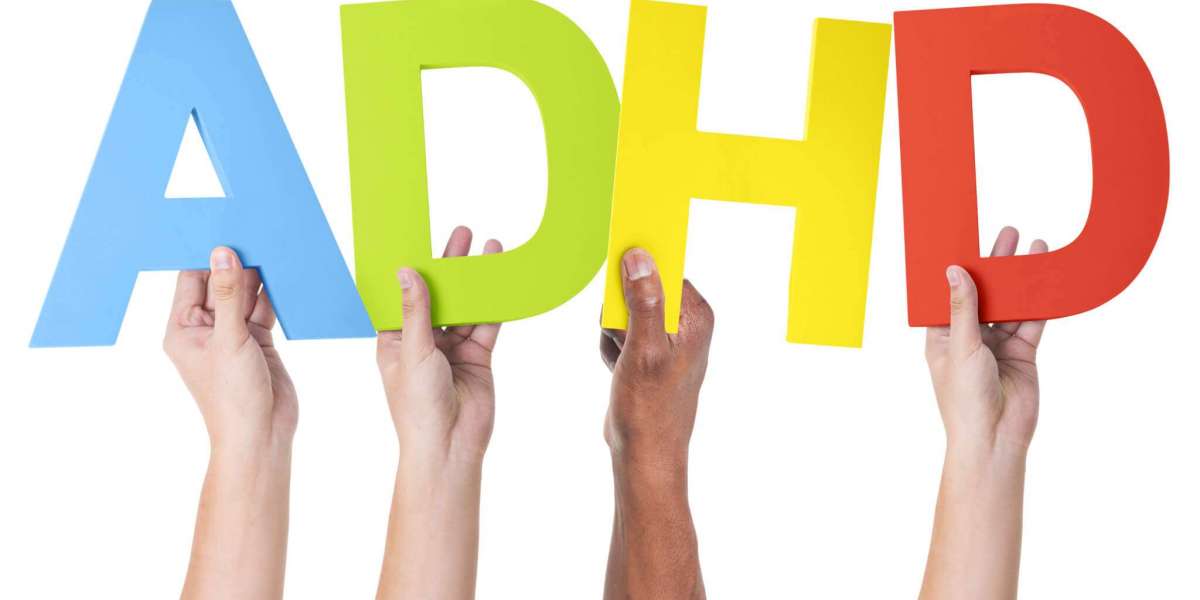Attention Deficit Hyperactivity Disorder (ADHD) is often thought of as a condition primarily affecting children, but in reality, it persists into adulthood for many individuals. Although ADHD may manifest differently in adults than in children, it can still pose significant challenges in daily life, including at work, in relationships, and in personal well-being. However, with proper understanding and strategies in place, adults with ADHD can achieve success in managing their symptoms and living fulfilling lives. This article will explore the signs of adult ADHD and offer strategies to help individuals cope and thrive.
Understanding Adult ADHD
ADHD is a neurodevelopmental disorder that affects a person’s ability to focus, regulate impulses, and maintain attention. It is estimated that approximately 4% to 5% of adults worldwide live with ADHD, though many of them may not have been diagnosed until later in life. Unlike children, who are typically more overt in their hyperactive behaviors, adult ADHD may be less apparent, but the core symptoms of inattention, hyperactivity, and impulsivity still persist.
Common Signs of ADHD in Adults
Recognizing ADHD in adults can be challenging, as the signs may be more subtle compared to childhood symptoms. Here are some common symptoms that may indicate adult ADHD:
1. Chronic Disorganization
Adults with ADHD often struggle with organization, both in their physical environment and in their schedules. This may include cluttered workspaces, missed deadlines, and difficulty prioritizing tasks. Even with the best intentions, adults with ADHD may find themselves overwhelmed by disorganization.
2. Difficulty Focusing
One of the hallmark symptoms of ADHD is difficulty sustaining attention on tasks, particularly those that are repetitive or uninteresting. This can manifest as frequently starting tasks without completing them or easily becoming distracted by irrelevant stimuli, which can affect work performance and productivity.
3. Impulsivity and Poor Decision-Making
Impulsivity is another common trait in adults with ADHD. This can show up as making decisions without fully thinking them through, engaging in risky behaviors, or experiencing sudden emotional outbursts. Poor decision-making can lead to financial issues, relationship difficulties, or problems at work.
4. Restlessness and Difficulty Relaxing
While hyperactivity in children is often characterized by physical restlessness, in adults, this can take the form of mental restlessness. Adults with ADHD may feel constantly “on edge,” find it hard to relax, or feel the need to be busy all the time.
5. Time Management Challenges
Adults with ADHD often struggle with time management, resulting in procrastination, missed appointments, and difficulty meeting deadlines. This time blindness makes it hard for them to gauge how long tasks will take or to allocate enough time for completion.
6. Low Self-Esteem and Chronic Frustration
Living with undiagnosed ADHD or struggling with unmanaged symptoms can lead to feelings of inadequacy, low self-esteem, and frustration. Adults may feel they are not living up to their potential, or they may feel misunderstood or blamed for behaviors that are part of the condition.
Strategies for Success with Adult ADHD
While adult ADHD can present challenges, there are several strategies and tools that can help individuals manage their symptoms and enhance their quality of life.
1. Seek Professional Diagnosis and Treatment
The first step in managing adult ADHD is to seek a professional evaluation. A diagnosis can help validate the individual’s experiences and allow them to better understand their condition. Treatment may involve a combination of medications and behavioral therapy. Stimulant medications, such as methylphenidate or amphetamines, are commonly prescribed to help increase focus and reduce impulsivity. Non-stimulant options are also available for those who do not respond well to stimulants.
In addition to medication, cognitive behavioral therapy (CBT) can be useful in helping adults with ADHD develop coping skills, improve time management, and change negative thought patterns.
2. Create a Structured Environment
One of the most effective strategies for managing adult ADHD is establishing a structured environment. This includes:
Organizing your workspace: Keeping your workspace clean and free of distractions helps reduce the likelihood of becoming overwhelmed. Utilize storage systems, file folders, and to-do lists to stay organized.
Setting reminders: Use digital tools like phone alarms, calendars, or apps to remind you of important tasks and deadlines.
Prioritizing tasks: Break down large projects into smaller, manageable tasks. Prioritize these tasks based on urgency and importance.
A structured environment provides clarity, reduces stress, and helps mitigate common ADHD challenges, such as forgetfulness and disorganization.
3. Develop Healthy Time Management Skills
Effective time management is crucial for adults with ADHD. Strategies that can help include:
Set timers to work in short, focused intervals (e.g., the Pomodoro Technique) to improve productivity and minimize distractions.
Establish daily routines and stick to them as consistently as possible. Routine helps reduce anxiety and increases predictability.
Planning for breaks: Schedule regular breaks throughout the day to maintain energy levels and prevent burnout.
Learning how to allocate time wisely can greatly reduce procrastination and ensure important tasks are completed on time.
4. Practice Mindfulness and Stress Management
Mindfulness practices, such as meditation and deep breathing exercises, can be beneficial for adults with ADHD. These techniques help improve focus, reduce stress, and enhance emotional regulation. Regular mindfulness practice allows individuals to become more aware of their thoughts and emotions, reducing impulsive reactions and promoting a sense of calm.
Exercise is another important tool for managing ADHD symptoms. Physical activity can help reduce restlessness, improve focus, and boost mood. Whether it’s through yoga, running, or weight training, regular exercise is an essential component of overall well-being.
5. Cultivate Self-Compassion
Adults with ADHD often experience feelings of shame, guilt, or frustration. It’s important to recognize that ADHD is a neurological condition, not a character flaw. Cultivating self-compassion can help reduce the negative self-talk that many adults with ADHD experience. Being kind to oneself and recognizing the strengths that come with treating ADHD —such as creativity and resilience—can help foster a more positive self-image.
Conclusion
ADHD in adults can present unique challenges, but with the right strategies and support, individuals can thrive. Understanding the signs and seeking professional treatment are key first steps toward managing symptoms. Establishing structure, improving time management, and practicing mindfulness can further help individuals with ADHD lead productive and fulfilling lives. With the right tools and mindset, adults with ADHD can navigate challenges with confidence and achieve success.







